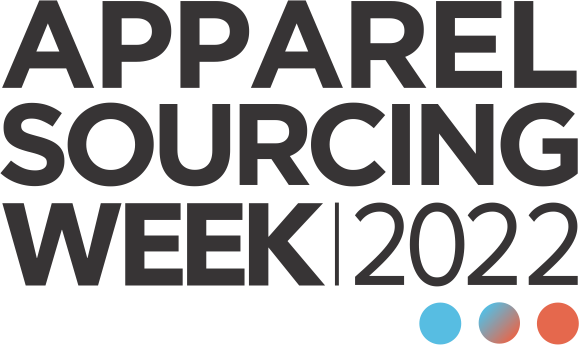News and Features
Being Human - A line with a heart for fashion and a knack for retail
14 January 2019
Apparel Resources

For a new Indian brand to touch a turnover of Rs. 250 crore in the first 5 years itself is a commendable feat, but the ride wasn’t always easy for Being Human, a mid-to-premium brand. After facing rejections in the Indian market on the pretext of it being a celebrity-led brand, Being Human found its first lucky break with the Landmark Group which gave it 120 doors for the GCC – including UAE and Pakistan. This move, coupled with Mandhana’s foothold in exports, gave the brand an immediate boost. A wealth of contacts in the West earned the brand a distributor in Europe which instantly connected it with the markets of France and Spain.
Today, the brand boasts of 70 plus stores pan-India, with more than 500 points of sale among large format stores such as Shopper’s Stop, Lifestyle and Central. Internationally, the brand has expanded to Mauritius and Nepal, with a 10-door Canadian entry just underway. In the online space, Being Human is a hot-seller at the likes of e-commerce giants such as Jabong and Myntra, the success of which led to the brand unveiling its own website in August 2018.
Kunal Mehta, VP Business Development & Marketing at Being Human, told AR,
We are one of the pioneers in India to have introduced a pure omnichannel experience – people have been talking about it since the past three years but we are the ones to have actually gone ahead and incorporated it into our business model. Bridging the gap between the physical and online store formats, the merchandise is shipped directly from the nearest store to the consumer within 3-4 days of ordering on the Being Human website.
MARKET SCENARIO
Built on the cornerstones of goodwill and hope, the brand’s USP lies in Charity, Celebrity and Fashion. Channelling the three into on-trend pieces, teamed up with a solid corporate social responsibility, makes Being Human a force to reckon with, for both buyers and consumers. Kunal corroborated,
Metro cities account for more than 50 per cent of our expansion, though it has been increasingly observed that the growth in Tier-1 and Tier-2 markets has been tremendous due to the aspirational value of our brand

The reign of fast fashion has affected each and every brand in the retail space, urging retailers to be on-trend, fast, varied and affordable. This has led Being Human to revise its entry-level pricing from Rs. 899 for a T-shirt coming down to Rs. 699, and Rs. 2,999 for denims coming down to Rs. 1,999. Kunal stated,
We haven’t compromised on quality but we have experimented with different kinds of fabrics and blends which we weren’t using earlier – even a Rs. 1,999 jeans or Rs. 699 tee will carry the same brand ethos. We’ve seen other brands moving towards the lower end of price point as well and it’s become the need of the hour to match competitive pricing.
To this, Purvi Joshi, VP International Business and Sourcing at Being Human, averred, saying,
The Indian customer wants ‘value for money’. It doesn’t matter if a product is retailing at Rs. 799 or Rs. 699, he has to be satisfied. So, quality has to be foremost, whether at a lower or higher price. Quality is the key factor that cannot be compromised at any price.
PRODUCT MIX
Following the Spring/Summer and Autumn/Winter format, the brand releases two collections every year inclusive of 85 per cent menswear and 15 per cent womenswear. The brand works on 500 SKUs comprising the complete category, manufacturing 15-18 lakh pieces per season, or around 35 lakh per year.

The brand features a mix of clothing and accessories out of which, depending upon the season and its corresponding trends, 25 per cent of the mix is the core range, 50 per cent is raked up by mid fashion and 20-25 per cent is premium or experimental fashion.
Owing to Mandhana’s strong roots in manufacturing around 85 per cent of products are sourced from India, while the remaining15 per cent of Being Human’s total buying comes from China and Bangladesh, which they prefer for the import of their jackets and denim categories. Kunal added,
Quality, pricing, delivery time – Bangladesh is known for these things. We get very good denims from Bangladesh, and it has been our prime vendor for the denim category. We are also importing winterwear and jackets from China. In India, we prefer Tirupur in the South for knits, Ahmedabad for shirting, so our shirt vendors are based in Ahmedabad and Ludhiana. Both our in-house factories manufacture our denims and chinos, and our pants come from Bangalore.

Purvi elaborated on the sourcing process, explaining,
Tech files with different guidelines are given to our suppliers. The biggest policy of sourcing is: ‘Don’t put all eggs in one basket’; so, we cannot depend on 1-2 vendors, if they fail, we are busted! Quantities are taken into account to plan suppliers along with suppliers’ review reports before placing future orders. All suppliers cannot be perfect all the time, so we review them after each order. If one performs well, we increase business with them, if not, then we reduce it after issuing a warning.
Lead time varies from 90-120 days for all products, with a case-based fast track option that works on 60 days at max for certain styles. Replenishment timelines vary between 8 to 10 days with core styles being given the most priority, and in mid to high, only sizes that retail fast can be reordered. During their Spring/Summer and Autumn/Winter buying, the product team always keeps a set percentage of the collection on standby.
If we see some style which is in trend right now, then we will keep that as a 5 per cent ratio buffer, so that we can get it immediately within 30 days lead time.
Comments

